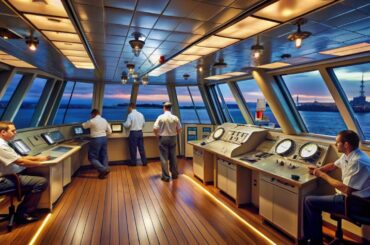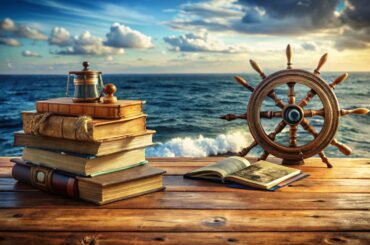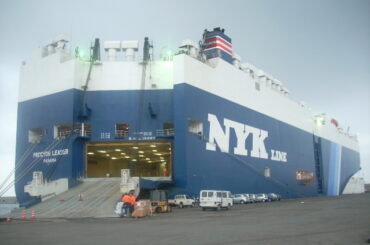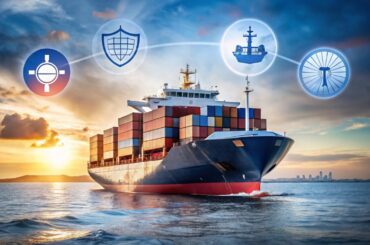When it comes to global maritime governance, the International Maritime Organization (IMO) stands as a cornerstone of safety and sustainability at sea. From shaping regulations on vessel construction to spearheading efforts to combat marine pollution, the IMO’s influence reverberates across oceans worldwide. But what about its involvement in emerging maritime challenges and the future landscape of shipping? Stay tuned as we navigate through the depths of IMO’s impact on modern maritime affairs, uncovering its pivotal role in shaping the seas of tomorrow.
History of IMO
From its establishment in 1959, the International Maritime Organization (IMO) has played a pivotal role in shaping global maritime regulations. Over the years, IMO has achieved significant milestones that have had a profound impact on the maritime industry.
One of the key milestones was the adoption of the International Convention for the Safety of Life at Sea (SOLAS) in 1974, which set minimum safety standards for the construction, equipment, and operation of ships.
Another vital moment in IMO’s history was the adoption of the International Convention for the Prevention of Pollution from Ships (MARPOL) in 1973, which aimed to minimize pollution of the marine environment. These milestones highlight the organization’s commitment to ensuring the safety and security of shipping while protecting the marine environment.
Furthermore, IMO has established strong global partnerships with various stakeholders, including governments, industry organizations, and non-governmental organizations.
These partnerships have been essential in developing and implementing effective maritime regulations that address the evolving challenges facing the industry. IMO’s history is a reflection of its dedication to promoting safe, secure, and environmentally sound shipping practices on a global scale.
IMO Regulations and Guidelines
The International Maritime Organization (IMO) enforces an extensive set of regulations and guidelines that govern the safety, security, and environmental aspects of the maritime industry. These regulations are essential for guaranteeing shipping safety and protecting the marine environment.
IMO regulations cover a wide range of topics, including ship construction standards, navigation procedures, crew competency requirements, and pollution prevention measures.
One of the key areas overseen by the IMO is maritime training. The organization sets standards for training programs that guarantee seafarers are equipped with the necessary skills and knowledge to handle emergencies, operate vessels safely, and comply with regulations.
Key IMO Conventions
Enforcing international standards and promoting uniformity within the maritime industry, the International Maritime Organization (IMO) has established key conventions that serve as foundational pillars for maritime regulations worldwide.
One of the most essential conventions is the International Convention for the Safety of Life at Sea (SOLAS), which sets minimum safety standards in the construction, equipment, and operation of ships. SOLAS aims to guarantee shipping safety by addressing various aspects such as fire protection, life-saving appliances, and navigation safety.
Another significant convention is the International Convention on Standards of Training, Certification and Watchkeeping for Seafarers (STCW). This convention establishes minimum requirements for training, certification, and watchkeeping for seafarers on an international level.
IMO’s Role in Environmental Protection
Building on the foundation of key conventions such as SOLAS and STCW, the International Maritime Organization (IMO) continues to play a critical role in shaping global maritime regulations, particularly in the domain of environmental protection.
IMO’s focus on sustainable shipping practices and pollution prevention is evident in various initiatives and regulations it has put forth.
IMO has established regulations to reduce air pollution from ships by limiting sulfur emissions, promoting the use of cleaner fuels, and implementing energy-efficient measures.
Additionally, the Ballast Water Management Convention aims to prevent the spread of invasive species through ballast water discharge, protecting marine ecosystems.
Through the MARPOL Convention, IMO tackles marine pollution by setting standards for the discharge of harmful substances like oil, chemicals, and sewage into the sea.
These regulations not only safeguard the marine environment but also enhance the sustainability of shipping operations.
IMO’s dedication to environmental protection underscores its commitment to promoting responsible and eco-conscious practices within the maritime industry.
Maritime Security Initiatives
Amidst the dynamic landscape of global maritime operations, ensuring the security of vessels, ports, and waterways remains a paramount concern. The International Maritime Organization (IMO) has been at the forefront of implementing maritime security initiatives to address threats such as piracy and cyber attacks effectively.
To combat the rising threat of piracy, the IMO has developed guidelines and best practices for piracy prevention. These initiatives include recommendations for ship operators on implementing security measures, conducting risk assessments, and enhancing communication and coordination among vessels and authorities in high-risk areas.
In the domain of cybersecurity, the IMO has recognized the increasing importance of safeguarding maritime infrastructure against digital threats. The organization has been actively promoting cybersecurity measures to protect critical systems onboard vessels and within port facilities.
This includes guidelines for managing cyber risks, ensuring the resilience of maritime operations, and fostering a culture of cybersecurity awareness among maritime stakeholders.
Future Challenges for IMO
Facing a rapidly evolving maritime landscape, the International Maritime Organization (IMO) is poised to encounter a multitude of future challenges that demand proactive and innovative solutions.
As the IMO navigates the future, several key challenges stand out:
- Digital Transformation: Embracing digital technologies is vital for enhancing efficiency, safety, and sustainability in maritime operations. The IMO must lead the industry in adopting digital solutions to streamline processes and improve communication.
- Climate Change: With the increasing focus on sustainability, the IMO faces the challenge of implementing regulations and initiatives to reduce greenhouse gas emissions and mitigate the impacts of climate change on the maritime sector.
- Stakeholder Engagement and Global Governance: Strengthening collaboration with stakeholders, including governments, industry players, and NGOs, is essential for developing effective global governance frameworks. The IMO must guarantee inclusive decision-making processes to address complex maritime issues effectively.
Navigating these challenges will require a proactive approach, a focus on emerging technologies, and a commitment to workforce development to meet the evolving needs of the maritime industry.
Frequently Asked Questions
How Does IMO Address Piracy and Armed Robbery at Sea?
To combat piracy and armed robbery at sea, focus on piracy prevention through enhanced maritime security measures. Utilize coordinated patrols, intelligence sharing, and capacity-building initiatives. These efforts help safeguard vessels and crew, fostering safer global maritime trade routes.
What Measures Does IMO Take to Promote Gender Equality in the Maritime Industry?
In promoting gender diversity in the maritime workforce, the industry implements initiatives like mentorship programs, scholarships, and leadership training. These efforts aim to empower women in traditionally male-dominated roles, fostering inclusivity and equality.
Does IMO Have Any Initiatives to Combat Marine Pollution From Microplastics?
To combat marine pollution from microplastics, regulations and pollution prevention initiatives are essential. These measures aim to reduce the impact of tiny plastic particles on marine ecosystems and organisms, safeguarding the health of our oceans.
How Does IMO Support Developing Countries in Implementing Maritime Regulations?
To support developing nations in enforcing maritime rules, capacity building programs are essential. By offering regulatory assistance, training, and resources, these initiatives aid countries in enhancing their maritime capabilities, ensuring compliance with international standards and fostering sustainable maritime practices.
What Role Does IMO Play in Promoting Digitalization and Technology in the Maritime Sector?
When enhancing the maritime sector through digital innovation, you focus on promoting technology standards. By setting guidelines and fostering advancements, you guarantee smooth integration of digital systems, enhancing efficiency and safety across the industry.






